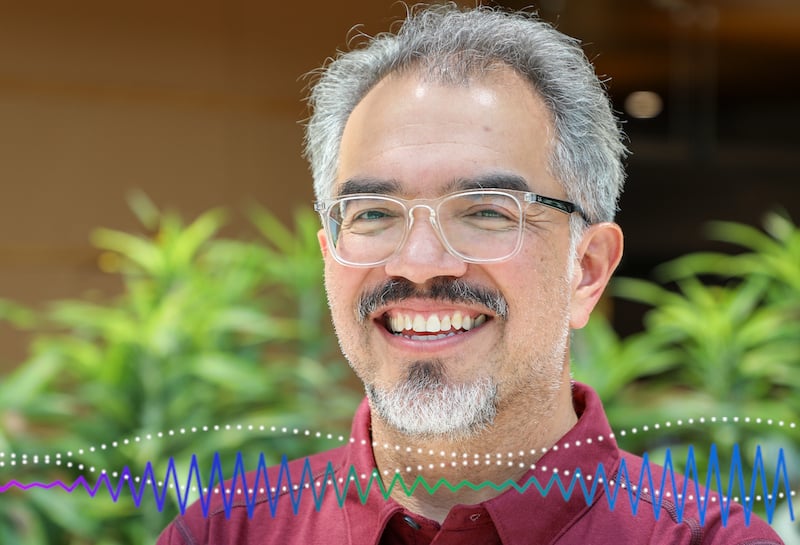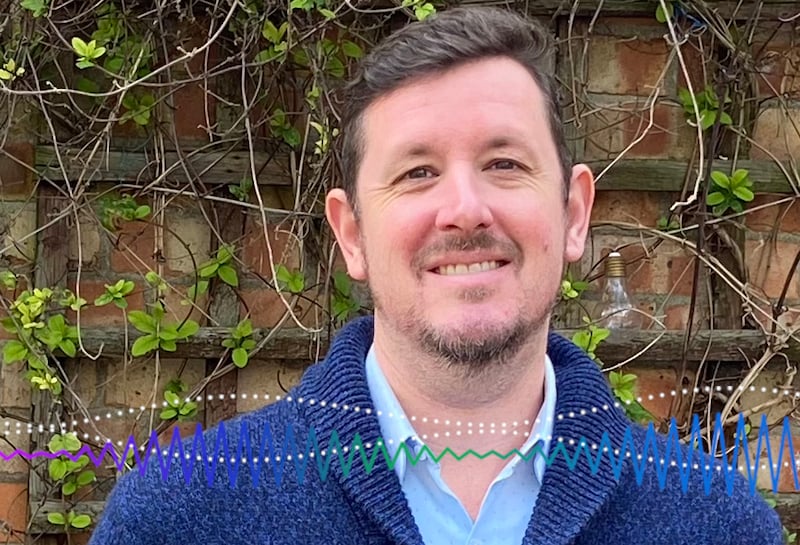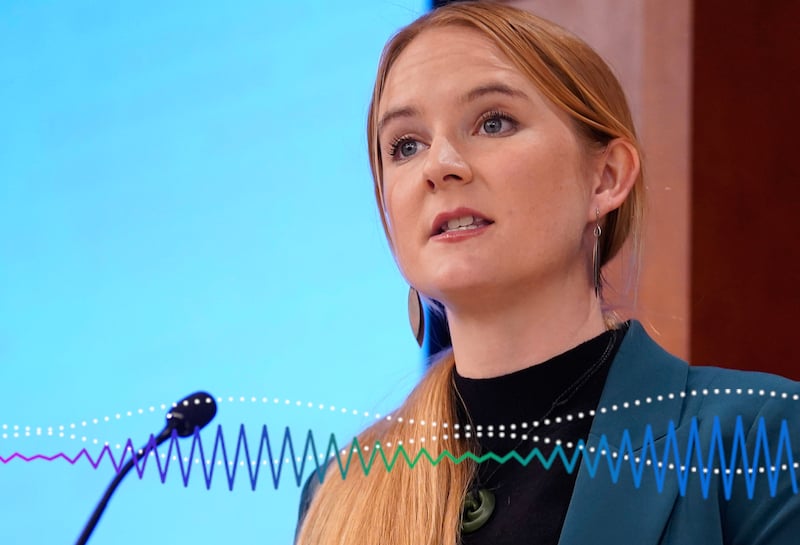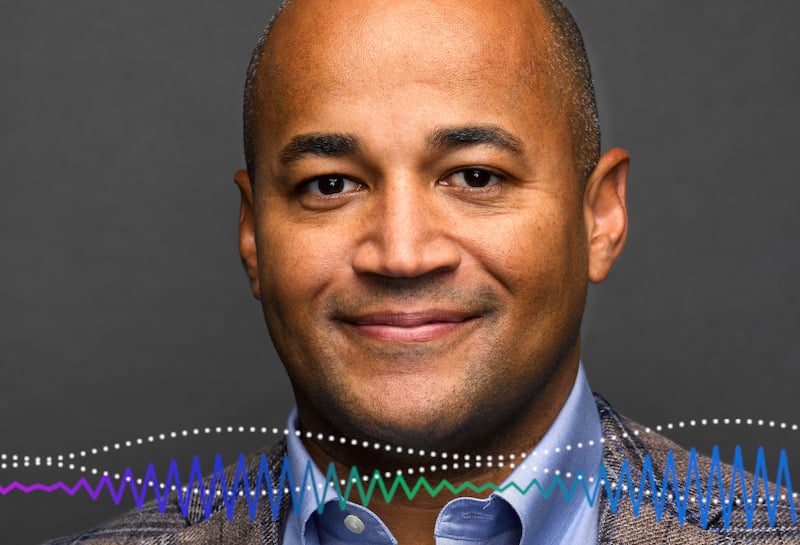
Sub-Saharan Africa’s Push to Diversify
Radio telescope dishes, South Africa. Technology opens doors for startups and helps economies diversify. (photo: Mike Hutchings/Reuters/Newscom)
In This Episode
In the new world of lower commodity prices, many sub-Saharan African countries are having to diversify their economies. And while sub-Saharan Africa has had periods of rapid growth, the process by which workers move from low-productivity jobs to better paying higher productivity jobs has been slower than in other regions. The IMF’s latest Regional Economic Outlook for sub-Saharan Africa devotes an entire chapter to studying the potential benefits of a stepped-up diversification agenda. In this podcast, co-author Axel Schimmelpfennig says Africa’s young entrepreneurs should be at the heart of the diversification process.
Hello, I’m Bruce Edwards, and welcome to this podcast produced by the International Monetary Fund. In this program: why sub-Saharan Africa needs to diversify and how young entrepreneurs can help make that happen.
MR. SCHIMMELPFENNIG [soundbite]: They should be at the heart of it. Diversification means creating new opportunities in sectors that are small or even nonexistent. That’s what an entrepreneur does, and that’s what young people can do.
MR. EDWARDS: In the new environment of lower commodity prices, many countries in sub-Saharan Africa are faced with having to diversify their economies. And while sub-Saharan Africa has had periods of strong growth, the process by which workers move from low productivity jobs to better-paying, higher productivity jobs, has been slower than in other regions. The IMF’s latest Regional Economic Outlook for Sub-Saharan Africa devotes an entire chapter to studying the potential benefits of a stepped-up diversification agenda. Axel Schimmelpfennig is the IMF’s mission chief for Uganda and co-author of the study.
So, diversification is a good thing, right? I mean, it seems fairly obvious that all countries should have a diversified economy. Why the emphasis in this report on diversification in sub-Saharan Africa?
MR. SCHIMMELPFENNIG: So, having a diversified economy has two main benefits. First, diversification on average is associated with higher growth, especially at earlier stages of development. And, second, we often see in countries that are more diversified that the growth volatility is slower, so you have a more steady growth path from year to year. So, in some you should get higher and more steady growth if you are a more diversified economy, and that should translate in improved living conditions and less shocks for everybody in the country. In sub-Saharan Africa, we’re focusing on diversification because as an aggregate the region lags behind other countries. We see that agriculture is much bigger than in other countries and we also see that the manufacturing sector is much smaller, and in some cases already declining.
But, having said that, the picture is of course much more nuanced when you look at the country level. The oil exporters, the commodity exporters, are countries that are less diversified, unsurprisingly. But, some of the more mixed commodity exporters, and in particular, the countries that are not commodity intensive—they’ve made some very important gains on diversification. And some of them, like Tanzania, Kenya, Uganda, or South Africa, have diversification levels that are very much on par with what we see in other emerging markets.
MR. EDWARDS: A lot of this report is about increasing productivity, but why so important to move away from low productivity to those higher productivity sectors when there is still a huge demand for low skilled, low productivity jobs in the region?
MR. SCHIMMELPFENNIG: Well, simply put, your productivity determines your wage. The more of a good you produce, the more likely you’re going to take an increased paycheck home. And that translates from the individual to the country level—the more productive your industry, the more you produce, and the more competitive you are in export markets.
On your second point, I’m not so sure that there’s a demand for low skill jobs. It depends on who’s demanding what. What we see is that there is a large share of the workforce that has little or no formal education, and for these unskilled laborers they can find work in agriculture, where you don’t need a lot of the formal training, but there are also opportunities in manufacturing, which has a higher productivity, so you’d get a higher wage if you’re able to move into manufacturing. The challenge initially, then, is to create these jobs in manufacturing that let people move from lower productivity to higher productivity jobs, and thus get higher incomes. But, looking further ahead, the challenge is for the youth who’s in school today, to equip them with the skills they need to get into even higher productivity jobs so that they can get better jobs, better wages, and enjoy higher living standards.
MR. EDWARDS: So, training is an issue sometimes, right? The training isn’t always available. So, you mentioned agriculture before and there seems to be this push to try and move away from low productivity agriculture. But, is that wise? I mean, some are claiming that we’re headed for a global food shortage. And Africa is in fact one of the very few places left that has an abundance of arable land. Isn’t this an opportunity? I mean, couldn't we be focused more on making the agricultural sector more productive?
MR. SCHIMMELPFENNIG: Well, this might be one of those cases where you can have your cake and eat it too. Economic diversification doesn’t mean that you're moving away from a sector in an absolute sense. Agriculture will always be an important sector because we all need to eat, and thus the country needs to produce food. The world needs to eat, so if a continent can produce some of that food, fantastic. But, it doesn’t mean that the share of food in our weekly shopping stays constant. In fact, over time as we earn higher incomes, we add other things to our shopping cart. Maybe previously we couldn’t afford them; maybe previously they weren’t available. So, even if we buy the same amount of vegetables, the share of those vegetables in our overall shopping cart, what we’re buying, comes down. And that’s in large part what economic diversification is—not so much producing less food, but producing more of other things—diversifying.
And, it goes back to the level of the economy. If you think of the industrial revolution, beforehand almost everybody worked in agriculture. Then, with the invention of automation, steam power, et cetera, people started moving into manufacturing because the wages were higher there. Now, interestingly, at the same time you also had automation in agriculture. So, you had fewer people working in agriculture, using machines, actually producing more, and also getting higher incomes. So, in that sense, over time it became beneficial for both sides.
So, you’re absolutely right, the focus is not to reduce agricultural production in Africa; the focus is on making it more productive—producing more, but also allowing people to move into other sectors.
MR. EDWARDS: So, there are regions in sub-Saharan Africa, in fact there are several regions in sub-Saharan Africa that are struggling with insecurity, like the Chad Basin, for example. To what extent is conflict disrupting the economies in the region?
MR. SCHIMMELPFENNIG: Unfortunately, conflict is a big factor; it is disrupting economies. In a country that suffers from conflict, economic activity becomes almost secondary. People are focused on scraping by, on daily survival. There is nothing regular about a country in conflict. It’s only when conflict is resolved that you have an opportunity for what we sometimes refer to as the “peace dividend.”
MR. EDWARDS: So, economies [can] pick up?
MR. SCHIMMELPFENNIG: Exactly. You can get back to normal life, you rebuild. And all of a sudden, there are also opportunities for exploring new things, maybe even diversifying from where you were previously. And at that stage it’s upon all of us, I think, to also come in and help these economies—as we at the IMF do—to do this rebuilding process.
MR. EDWARDS: So, we hear a lot about new technology and how it offers start-up opportunities for these small businesses. Where do these young entrepreneurs fit into this diversification process?
MR. SCHIMMELPFENNIG: They should be at the heart of it. Diversification means creating new opportunities in sectors that are small or even nonexistent. That’s what an entrepreneur does, and that’s what young people can do. Often, entrepreneurs are young people who haven’t kind of slowed down living and thinking and experimenting. So, we need these people, we need them to put their ideas into action. Sub-Saharan Africa, as you said, has a young and growing population, which means more and more young people will start looking for work over the next two decades. And if some of these become entrepreneurs, that will really help the continent push forward—set up new companies, adopt new technologies, invent new technologies—really leapfrogging to the forefront of all of that and driving some of that change that we’re seeing in the global economy.
In many ways, that’s one of the biggest challenges for the continent. You have this young workforce, but now you need to equip them with skills. And, as I said earlier, education is really the key to that, to make sure that when young people enter the labor force, when they think about: should I become an entrepreneur? or, should I go and work somewhere? —they have the skills to do that. Because tomorrow’s jobs are most likely going to be very different from today’s; they will require even more skills. So, education—helping the young people to succeed—is one of the key challenges to make all of this happen.
MR. EDWARDS: That was Axel Schimmelpfennig, IMF mission chief for Uganda, and co-author of the chapter on Diversification in the latest Regional Economic Outlook for Sub-Saharan Africa. You can read the full report at imf.org.
And, if you liked this podcast, subscribe on iTunes or on your favorite podcast app, just search for “IMF Podcasts.” And, you can now also follow us on Twitter: @imf_podcast.
Join Us on Every Major Platform
Latest Podcasts
BEHIND THE MIC

Bruce Edwards
International Monetary Fund
Bruce Edwards produces the IMF podcast program. He's an award-winning audio producer and journalist who's covered armed conflicts, social unrest, and natural disasters from all corners of the world. He believes economists have an important role in solving the world's problems and aspires to showcase their research in every IMF podcast.

Rhoda Metcalfe
RHODA METCALFE is an independent journalist and audio producer.










